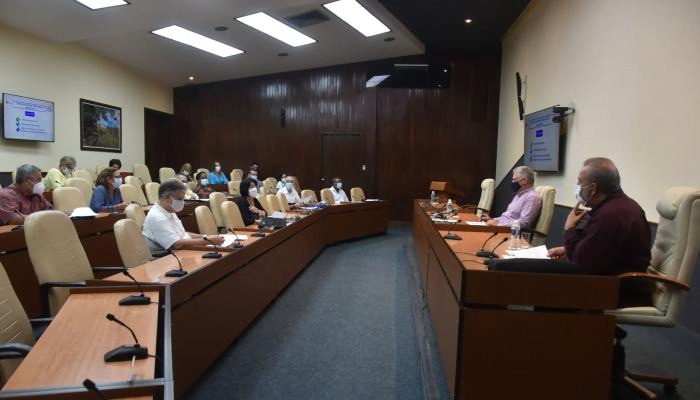
Cuba's labor sector gradually returning to normal. (Photo: Prensa Latina)
Havana, October 12 (RHC)-- Cuba's labor sector is gradually returning to normal after seven months of confrontation with COVID-19, according to a review of the country's employment, wage and social security program.
During the meeting, headed by President Miguel Díaz-Canel, it was reported that the number of interrupted workers decreased as the rebound has been controlled, leaving around 99,600 of the more than 146,500 workers that the Caribbean nation had, according to a report on Sunday evening's TV newscast.
The Minister of Labor and Social Security, Marta Elena Feitó, informed that due to the progressive recovery, around 200,000 self-employed workers (private sector) are also returning to their activities, of the more than 251,000 whose licenses were suspended during this period.
She pointed out that the country provided during this stage salary guarantees, in addition to 20,000 Cubans who were working and were confined to their homes due to their condition of vulnerability, as well as to more than 55,000 working mothers who had to take care of their small children.
These people, in the new normality towards which almost all the national territory is moving, are returning to their workplaces.
The head of Labor referred to the resistance of some managers to keep working at a distance during the recovery, despite having demonstrated its validity not only in guaranteeing distance, but also in alleviating situations such as transportation.
She also said that of the measures approved in the economic recovery strategy, progress is already being seen in relation to the agricultural workforce becoming more flexible, the reincorporation of retired workers, and the hiring of employees from the same entity for different tasks, outside of their work hours.
The Ministry of Labor and Social Security intends to create, together with scientists, the social and labor laboratory of Cuba, Feitó commented, an initiative that the Cuban president urged to promote, so that from research it contributes to the decision making about the labor and social future of the nation.
In the meeting, it was also known that, at the end of 2019, the employment situation improved in comparison with the four previous years, with the identification of more than 193 thousand jobs, mainly in tourism, industry and construction.

